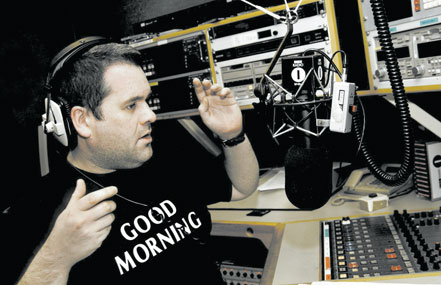
Costs of the BBC’s main drive-time shows fronted by Chris Evans, Scot Mills, Ace & Invisible and Steve Lamacq were also significantly higher than those of its commercial counterparts.
The NAO report is the first to directly compare the cost of BBC radio programmes against its commercial competitors, taking into consideration staff wages and general overhead costs.
While the Corporation refused to provide transparent breakdowns of the specific wages commanded by its presenters, it did admit they made up the main bulk of its breakfast staff costs (77%) and drive-time expenses (79%).
The findings led NAO to conclude that the BBC is not making full use of opportunities to increase the value for money it is achieving in radio production. The report added: "It is likely that a systematic analysis of the costs and performance would help the BBC to identify areas where it could make further efficiency savings."
The report also suggests the BBC explores the possibility of establishing benchmarking studies with commercial radio stations to help identify where and how savings can be made.
Edward Leigh MP, chairman of the Committee of Public Accounts, said the findings confirmed the BBC could "do much more".
He condemned the confidentiality clauses in the contracts of its radio presenters as "scandalous" and equivalent to the BBC "trying to impose a gagging order on the NAO".
He also called for the publicly-funded organisation to account for why it spends "much more money" per hour than its commercial rivals on breakfast and drive time shows.
The report was commissioned by the BBC Trust in October 2007 as part of a five year efficiency programme. The goal is to reduce costs while maintaining the quality of its output.
The BBC spent 14% of its licence fee income, some £462m, on its radio services in 2007-08. It has committed to delivering 3% reductions every year from 2008-2009 to 2012-13.
For its ten Network radio stations (BBC Radios1-5, BBC 1Xtra, BBC Asian Network, BBC Radio 5 Live Sports Extra, 6 Music and BBC7) the target is £57.4m in savings by 2013. For the six Nations stations (two each for Scotland, Northern Ireland and Wales) it is £11.3m.
The report did acknowledge the BBC had already found £11.7m worth of savings in the past three years to March 2008.
The Trust has asked the BBC Executive to report back in 12 months on the progress they have made in addressing its conclusions.



.jpg)


.jpg)